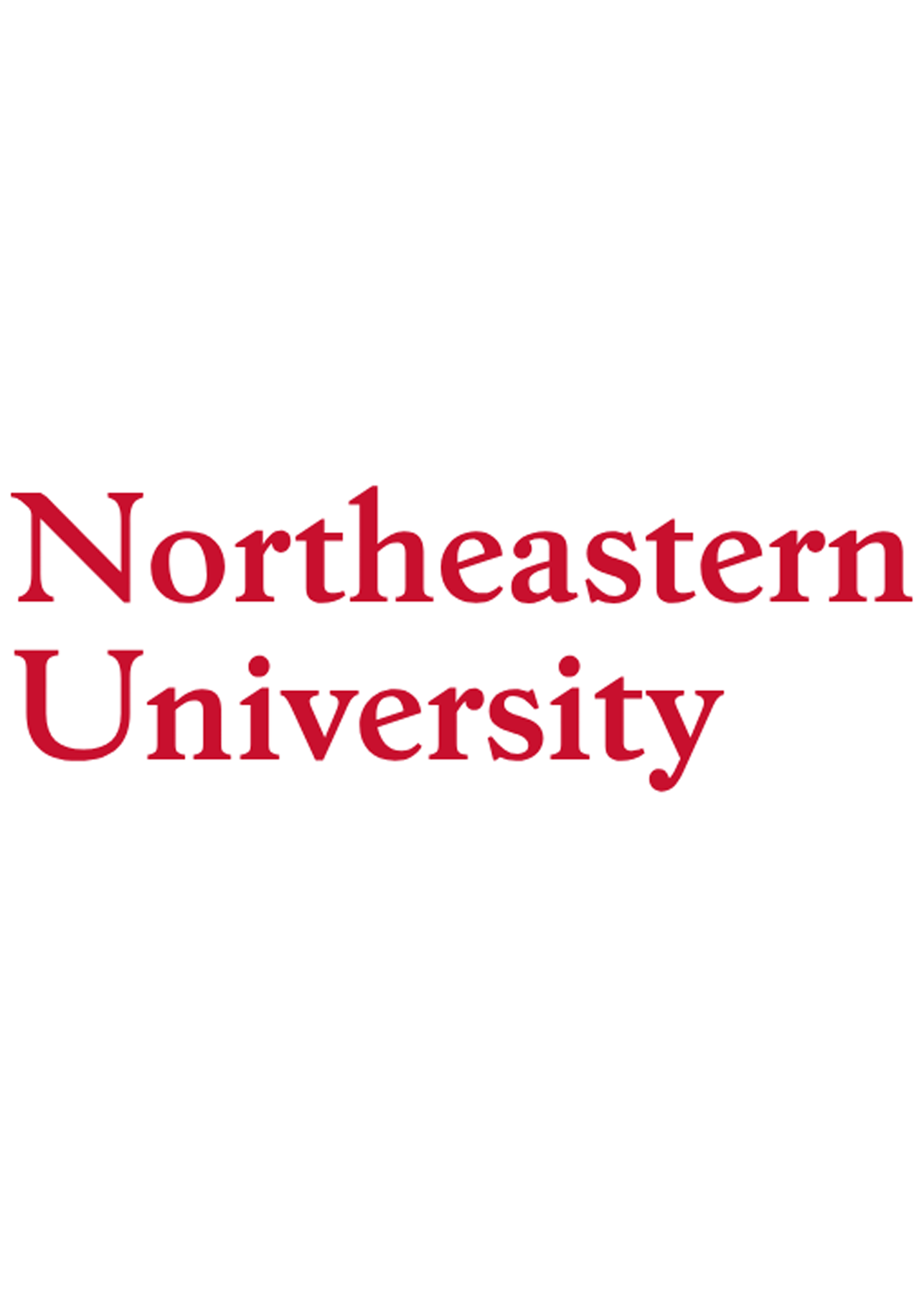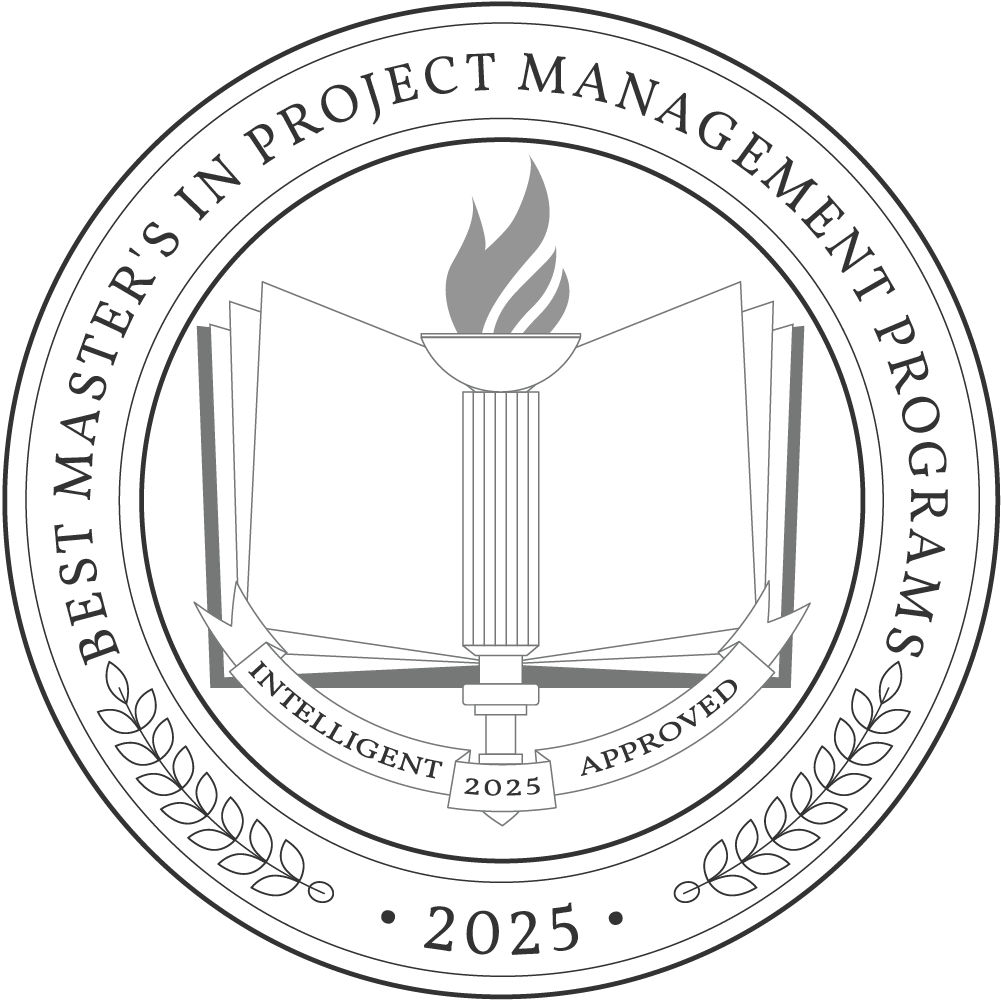A master’s in project management can prepare you for work in a variety of industries, including manufacturing, construction, engineering, finance, healthcare, and technology. Graduate-level degrees can also help you position yourself for a leadership role overseeing projects and programs.
Project management professionals make $95,370 per year on average, according to the Bureau of Labor Statistics (BLS). However, pay varies widely depending on the type of role you’re in and the industry.
The average annual tuition and fees for a graduate-level degree was around $19,749 as of the 2020-2021 academic year. Costs at private institutions averaged around $26,621 annually, and costs at public institutions averaged around $12,394. Depending on your previous coursework, experience, and the type of degree program you choose, it may take one to three years to earn your master’s in project management.
Master’s in Project Management Programs That Might Interest You
Learn about start dates, transferring credits, availability of financial aid, and more by contacting the universities below.
Why Trust Us
The Intelligent.com Higher Education Team is dedicated to providing students with independent, equitable school and program rankings and well-researched resources. Our expert-driven articles cover topics related to online colleges and programs, paying for school, and career outlooks. We use data from the U.S. Department of Education’s College Scorecard, the National Center for Education Statistics, and other reputable educational and professional organizations. Our academic advisory team reviews content and verifies accuracy throughout the year for the most current information. Partnerships do not influence rankings or editorial decisions.
- Analyzed over 2,000 national, accredited, and nonprofit colleges and universities
- 800+ rankings pages are reviewed and updated yearly
- Content is informed by reputable sources, surveys, and interviews with academic advisors and other experts
- Over 100 data points are reviewed for accuracy and quality throughout the year, including sources
How we rank schools
Our list features the best Master’s in Project Management degree programs at top colleges nationwide. Each school featured is a nonprofit, accredited institution — either public or private — with a high standard of academic quality for post-secondary institutions.
We evaluated each school’s program on tuition costs, admission, retention and graduation rates, faculty, reputation, and the student resources provided for online students. We collected data from trusted sources like the National Center for Education Statistics, individual school and program websites, school admissions counselors, and other data sources. Then, we calculated the Intelligent Score on a scale of 0 to 100 based on the following criterion:
Academic Quality:
- Admission rate versus enrollment rate
- Retention rate of students who return after year one
- Accreditation status (regional and programmatic)
- Nonprofit status, both private and public institutions
Graduation Rate
- Overall graduation rate
- Total number of currently enrolled students, including diversity metrics
- Student-to-faculty ratio
Cost and ROI
- In-state and out-of-state per-credit tuition rates and fees
- Required credits to graduate
- Earning potential after graduation
- Availability of federal student loans, scholarships, and other financial aid options
Student Resources
- Available student services for online-only and hybrid programs
- On-campus amenities like tutoring centers and the number of libraries
Read more about our ranking methodology.
Best 22 Accredited Master's in Project Management Degree Programs
FiltersInstitution Type
Status
- Intelligent Score
- Alphabetically By University Name
- Acceptance Rate
- Enrollment
- In-state Graduate Tuition
- Out-of-state Graduate Tuition
- In-state Undergraduate Tuition
- Out-of-state Undergraduate Tuition

Georgetown University
Intelligent Score: 98.36In-state: $57,384
Out-of-state: $57,384
In-state: $53,136
Out-of-state: $53,136
SAT: 1380-1550
ACT: 31-35
$1,573
On-Campus, Online
PMI Global Accreditation Center
30

Stevens Institute of Technology
Intelligent Score: 97.14In-state: $53,828
Out-of-state: $53,828
In-state: $37,414
Out-of-state: $37,414
SAT: 1320-1480
ACT: 31-34
$1,864
On-Campus, Online
PMI Global Accreditation Center
30

Boston University
Intelligent Score: 96.74In-state: $56,854
Out-of-state: $56,854
In-state: $56,854
Out-of-state: $56,854
SAT: 1310-1500
ACT: 30-34
$535 - $955
On-Campus
PMI Global Accreditation Center
40

University of Maryland
Intelligent Score: 96.56In-state: $8,824
Out-of-state: $34,936
In-state: $13,158
Out-of-state: $13,158
SAT: 1270-1480
ACT: 30-34
In-State: $828
Out-of-State: $1,805
On-Campus
PMI Global Accreditation Center
30

University of Houston
Intelligent Score: 94.14In-state: $8,449
Out-of-state: $20,665
In-state: $8,539
Out-of-state: $8,539
SAT: 1120-1310
ACT: 22-28
In-State: $549
Out-of-State: $1,069
On-Campus
PMI Global Accreditation Center
30

NYU School of Professional Studies
Intelligent Score: 93.19In-state: $52,204
Out-of-state: $52,204
In-state: $34,704
Out-of-state: $34,704
SAT: 1370-1540
ACT: 31-34
$2,123 - $2,548
On-Campus, Online
PMI Global Accreditation Center
36

University of Kansas
Intelligent Score: 93.17In-state: $10,092
Out-of-state: $26,960
In-state: $9,989
Out-of-state: $9,989
SAT: 1070-1320
ACT: 22-29
$585
On-Campus, Online
PMI Global Accreditation Center
33

Rochester Institute of Technology
Intelligent Score: 92.86In-state: $47,352
Out-of-state: $47,352
In-state: $50,136
Out-of-state: $50,136
SAT: 1220-1420
ACT: 28-33
$1,580 - $2,370
On-Campus, Online
PMI Global Accreditation Center
30

Northwestern University
Intelligent Score: 92.82In-state: $58,227
Out-of-state: $58,227
In-state: $56,067
Out-of-state: $56,067
SAT: 1430-1550
ACT: 33-35
$2,044
On-Campus
PMI Global Accreditation Center
36

The Citadel
Intelligent Score: 92.3In-state: $75
Out-of-state: $75
In-state: $10,740
Out-of-state: $10,740
SAT: 1030-1210
ACT: 21-26
In-State: $500
Out-of-State: $925
On-Campus, Online
PMI Global Accreditation Center
30

Florida Institute of Technology
Intelligent Score: 90.52In-state: $42,346
Out-of-state: $42,346
In-state: $22,338
Out-of-state: $22,338
SAT: 1130-1330
ACT: 23-30
$920
On-Campus
PMI Global Accreditation Center
33

GW School of Business
Intelligent Score: 90.22In-state: $55,961
Out-of-state: $55,961
In-state: $31,770
Out-of-state: $31,770
SAT: 1270-1450
ACT: 30-33
$1,965
On-Campus, Online, Hybrid
PMI Global Accreditation Center
30

Golden Gate University
Intelligent Score: 90.15In-state: $12,456
Out-of-state: $12,456
In-state: $19,620
Out-of-state: $19,620
SAT: N/A
ACT: N/A
$1,090
On-Campus, Online
PMI Global Accreditation Center
33-36

Sam Houston State University
Intelligent Score: 87.3In-state: $5,856
Out-of-state: $15,672
In-state: $5,765
Out-of-state: $5,765
SAT: 970-1120
ACT: 18-23
In-State: $320
Out-of-State: $728
On-Campus
PMI Global Accreditation Center
36

University of Michigan - Dearborn
Intelligent Score: 84.88In-state: $16,520
Out-of-state: $53,669
In-state: $24,344
Out-of-state: $24,344
SAT: 1340-1520
ACT: 31-34
In-State: $883
Out-of-State: $1,638
On-Campus
PMI Global Accreditation Center
30

Lewis University
Intelligent Score: 84.73In-state: $34,268
Out-of-state: $34,268
In-state: $14,580
Out-of-state: $14,580
SAT: 1010-1220
ACT: 21-27
$860
On-Campus
PMI Global Accreditation Center
30

Northeastern University
Intelligent Score: 84.33In-state: $54,360
Out-of-state: $54,360
In-state: $25,264
Out-of-state: $25,264
SAT: 1410-1540
ACT: 33-35
$899
On-Campus
PMI Global Accreditation Center
45

Embry - Riddle Aeronautical University
Intelligent Score: 84.03In-state: $36,456
Out-of-state: $36,456
In-state: $18,228
Out-of-state: $18,228
SAT: 1140-1320
ACT: 23-29
$836
On-Campus
PMI Global Accreditation Center
30
How to Choose a Master’s in Project Management Degree Program
Choose your area of study
While project management professionals are typically tasked with overseeing project efforts, acting as a communication liaison between project teams and other stakeholders, and helping teams apply project methodology correctly, these tasks look very different across various industries. Before applying for a master’s in project management program, determine your objectives for the degree.
For example, if you want to move into construction project management, the skills and knowledge you need are different from what you must learn to be a successful technical project manager. The same is true of an operations manager versus a financial project manager. Think about your career trajectory and your industry so you can seek a program that fits those needs.
Research schools and programs
Start the search for a program that best fits your needs. Create your shortlist by considering factors such as how much a program costs, where it’s located, whether it’s online or in-person, and what type of coursework is involved.
Be realistic about your options. If you work full-time and want to add a master’s degree in project management to your resume, attending a full-time, in-person program two hours away may not be viable.
You should also consider whether a program is of suitable quality. Look for schools and programs that are accredited by organizations such as the Higher Learning Commission or New England Commission of Higher Education.
Prepare for tests and applications
Many graduate schools require you to submit a GRE or GMAT test score with your application. Make sure to consider admission requirements as you research schools, and plan ahead so you can take the necessary tests and get results back before any application deadlines.
You will also need to complete the school’s application process, which can include paying a fee, providing academic transcripts from previous degrees, and submitting essays, letters of recommendation, and resumes. Every program’s admission process is unique, so ensure you meet with an admissions counselor as you prepare applications for specific schools.
Select your program
It’s typically a good idea to apply to a few programs when possible. This is because you aren’t guaranteed entry. If you only apply to one program and are denied admission, it could be a semester or year before you can apply to and start a backup program. Consider applying to your top three choices, at least.
Your application status with each program helps to determine your next step. If you apply to three programs and only one accepts you, the choice is made for you. If all three accept you, consider which option best meets your needs and provides the type of coursework that supports your career as a project management professional in your industry.
Determine how you’ll pay for your degree
Grad school can be pricey, so ensure you have a financial plan before you apply. Some ways you might pay for your master’s degree in project management include:
- Employer education reimbursement. Peruse your benefits package or talk to HR to find out if your employer offers education perks.
- Apply for scholarships and grants. Complete the Free Application for Federal Student Aid to find out what type of options you might qualify for, and talk to your school’s financial aid office to find out about private and local scholarship funds.
- Apply for a work-study program. While you’re in the financial aid office, ask about work-study and graduate assistantship programs.
- Take out loans. As a final resort, borrow money to cover tuition and other costs. Ensure you understand the fees and other terms and the total cost of the loan.
Next, we compared this comprehensive list of online PhD programs to a list of aggregated college rankings from reputable publications like the U.S. News & World Report among others to simplify a student’s college search. We pored through these rankings so students don’t have to.
What Can You Expect From a Master’s in Project Management Degree Program?
Over the course of one to three years, you can expect to hone your project leadership and management skills in such a program. Coursework often focuses on planning and leading continuous improvement and project efforts, with attention given to details such as budget development and management, project and resource planning, and strategic thinking.
The exact nature of your coursework depends on the program’s specialty. For example, a graduate-level project management degree program for technical professionals might include coursework on common development practices such as Agile, and a program geared toward project management in heavily regulated fields might incorporate courses on compliance.
You may need to complete a capstone project, often as part of a class in your last semester. This is akin to a thesis class but involves a project that demonstrates your mastery over many of the skills learned in the program. In some cases, professionals may be able to use a project they are leading at work as their capstone.
Potential courses you’ll take in a master’s in project management degree program
- Resource Management. Project managers and leaders must be able to efficiently utilize resources and balance that use with the overall needs of the business. Courses related to these skills often include words like “planning,” “allocation,” or “resources” in the title.
- Impact Analysis and Sustainability. Large corporations, nonprofits, and other entities must remain aware of how their efforts impact cultures, societies, and the environment. Individuals in master’s in project management degree programs may take courses that help them develop impact analysis skills.
- Organizational Ethics. Implementing projects with a strong ethics foundation typically enhances those projects’ success. Ethics is so important in the field that the Project Management Institute created a code and a decision-making framework to support project leaders and teams. Most master’s degrees in project management programs include courses focused on project ethics and applying them in real-world settings.
- Probability and Statistics. Project management is often heavy on the math, as project leaders must be able to analyze and draw conclusions from various data types. You may take courses that teach statistical analysis and the use of tools such as control charts.
- Intercultural Business Communications. Often, project leaders work with employees, vendors, clients, and other stakeholders from all over the world. This type of course helps you develop communication skills that work in such environments.
Master’s in Project Management Degree Program Frequently Asked Questions
How do I apply to a master's in project management degree program?
If you already work in the project management space or have some undergrad coursework on the topic, use what you know to enhance your success with the application process. Approach it like a mini-project by gathering admissions requirements and making a project plan with milestones.
Think about dependencies and how to plan for them. For example, if a program requires letters of recommendation, your success depends on someone else writing a letter. How can you communicate that need and ensure the letter is written and delivered on time?
Always talk to the admissions office of prospective schools to ensure you know exactly what to provide with your application to support success.
How much does a master's in project management degree cost?
Costs vary widely and depend on factors such as how many credit hours you need, whether you’re paying in-state or out-of-state tuition, and what type of books and supplies you might need. The average total cost of a master’s degree of any type is around $40,000.
However, if you don’t need to cover the cost of room and board, you may save a significant chunk on graduate degree expenses. And if you can find an online, hybrid, or accelerated program that meets your needs, you might further reduce expenses.
How long does it take to earn a master's in project management degree?
If you enter an accelerated program designed for working professionals with experience, you may complete your degree in as little as a year. Traditional programs are usually designed to be completed in two years for those attending full-time.
Online programs can sometimes shorten the timeframe for completion because they often allow you to work at your own pace or provide enough schedule flexibility to be able to take more courses at a time. However, this isn’t always the case, so discuss your goals and timeline with an admissions counselor.

